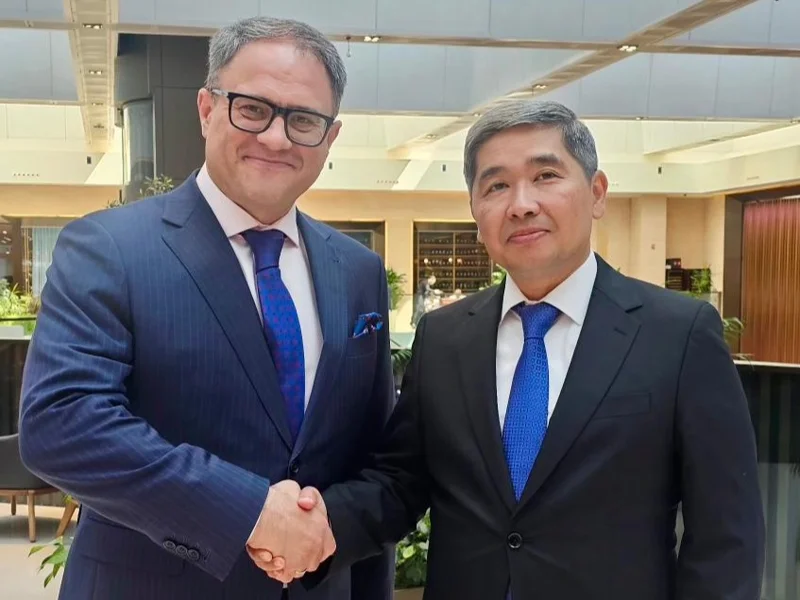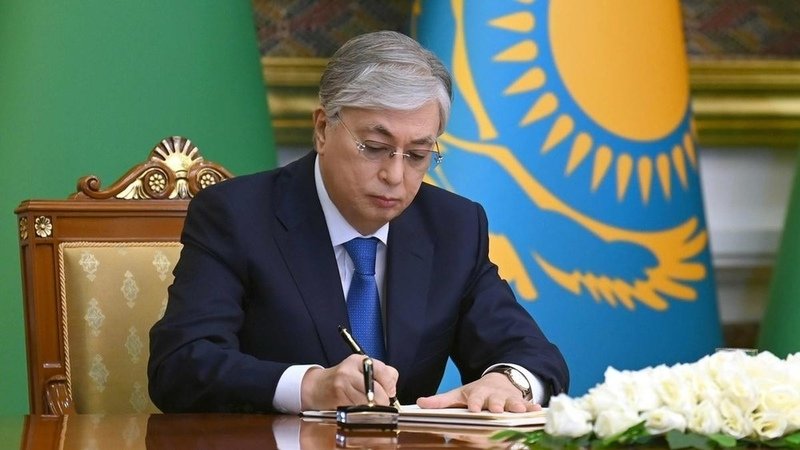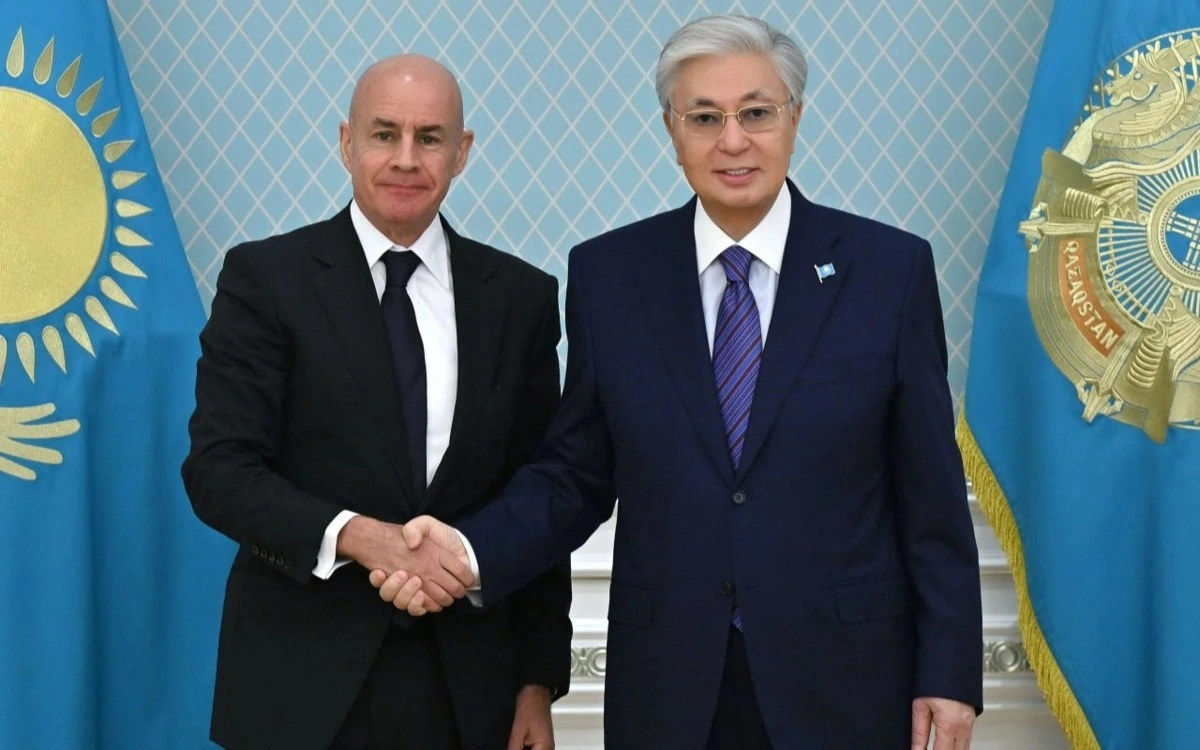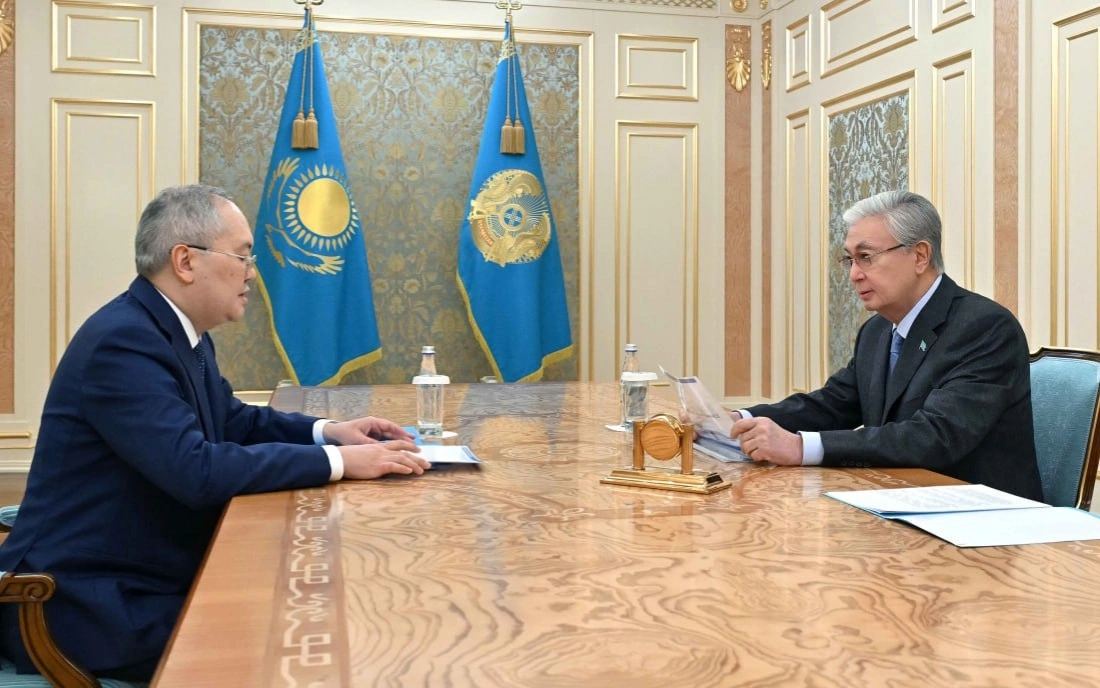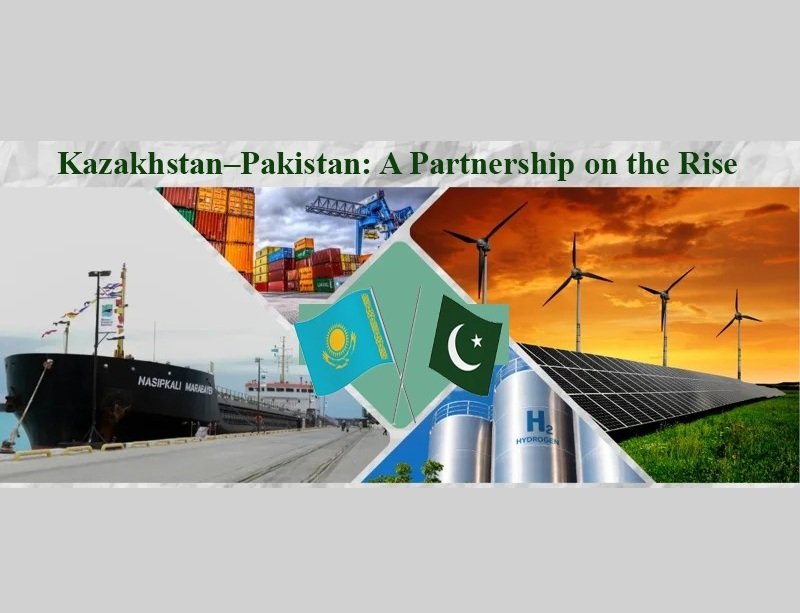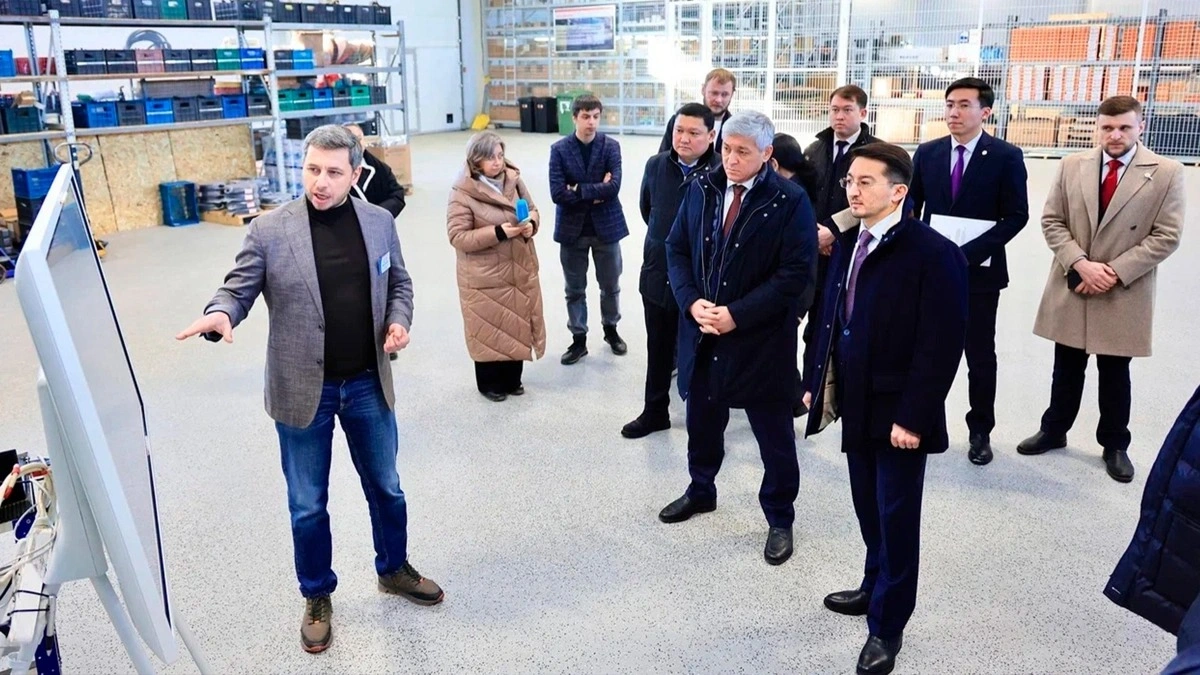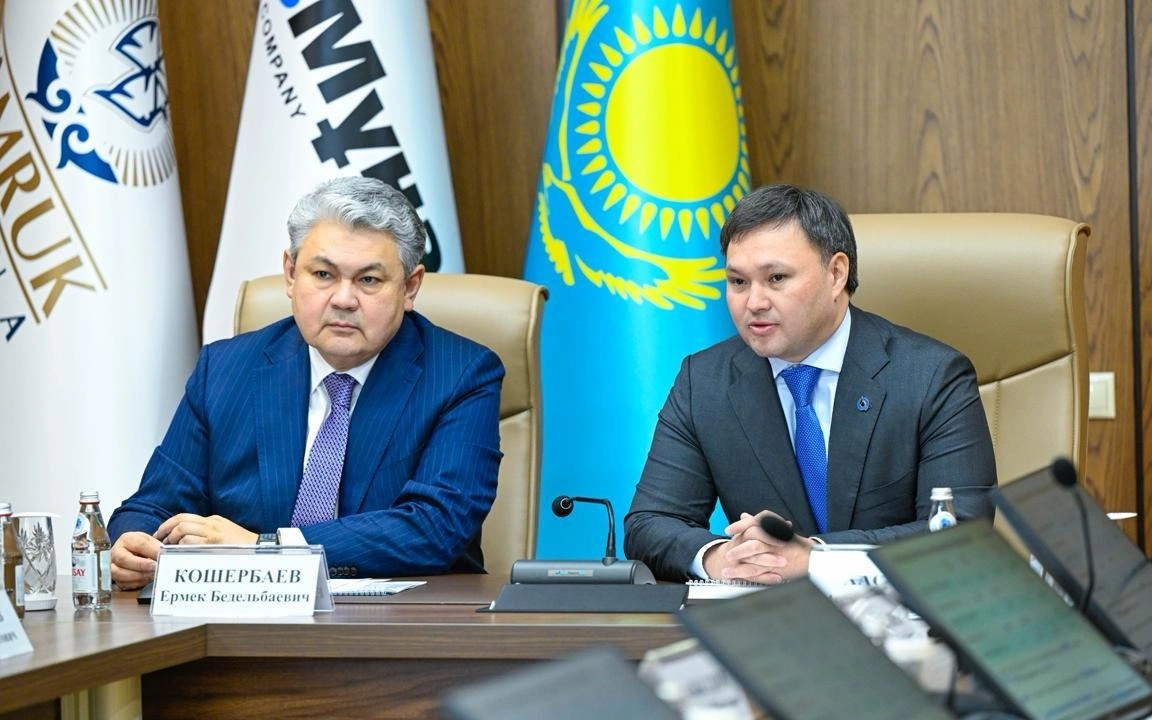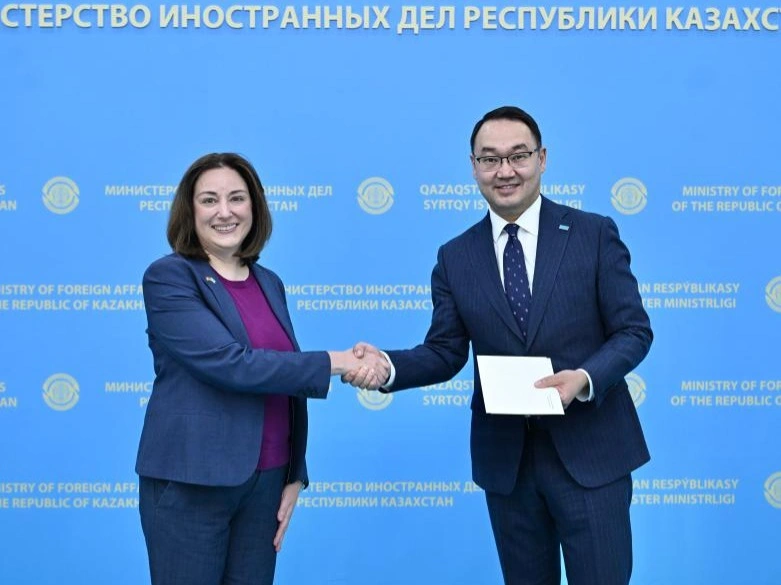Astana, May 15, 2025 – The Europe Today: Deputy Minister of Foreign Affairs of Kazakhstan Roman Vassilenko held a meeting with Bakyt Dzhusupov, OSCE Coordinator of Economic and Environmental Activities (OCEEA), during the latter’s visit to Kazakhstan, according to the Kazakh Foreign Ministry.
Deputy Minister Vassilenko emphasized the importance of the OSCE’s Second Dimension—focusing on economic and environmental issues—as a key platform for dialogue and confidence-building within the Organization, especially in the face of ongoing geopolitical tensions. He reaffirmed Kazakhstan’s commitment to active and constructive cooperation with the OSCE on a wide array of shared priorities.
During the meeting, the two sides discussed broad-ranging collaboration in areas such as sustainable development, transport connectivity, environmental protection, the climate agenda, and efforts to combat corruption and money laundering.
Deputy Minister Vassilenko praised the effective cooperation between the OCEEA and relevant Kazakh government institutions, particularly with the Asset Recovery Committee of the General Prosecutor’s Office. Coordinator Dzhusupov acknowledged Kazakhstan’s growing expertise in this field, highlighting the reinvestment of recovered assets into social infrastructure, which has attracted interest from other OSCE participating States.
Kazakhstan also expressed keen interest in continued engagement with OSCE-led initiatives, including the extrabudgetary project on the development of “green” ports in the Caspian region. Thanks to this initiative, the Kazakh ports of Aktau and Kuryk have achieved EcoPort status from the European Sea Ports Organization (ESPO)—a designation expected to boost international investment in their infrastructure.
The meeting underlined the strategic significance of the Trans-Caspian International Transport Route (TITR), also known as the Middle Corridor. Deputy Minister Vassilenko noted that freight volumes through the route surged by 62% in 2024, reaching 4.5 million tons, and confirmed that Kazakhstan is actively expanding the capacity of its Caspian ports with the goal of increasing transit throughput to 10 million tons by 2027.
The Kazakh side also confirmed its interest in supporting a new OSCE project aimed at enhancing cross-border connectivity in Central Asia and the North Caucasus, which would further reinforce Kazakhstan’s role as a pivotal regional and global transit hub.
Climate and environmental issues were given special attention. The Deputy Minister reaffirmed Kazakhstan’s commitment to its international environmental obligations, notably the 2021 Stockholm Ministerial Council Decision on strengthening OSCE cooperation in addressing climate-related security risks.
Support was also expressed for the climate priorities of Finland’s OSCE Chairpersonship, with Kazakhstan set to participate at a high level in the upcoming International Conference on Climate and Security in Finland this June.
The two officials also reviewed preparations for the Regional Climate Summit, which Kazakhstan will host in 2026 under United Nations auspices. Dzhusupov underscored the significance of this summit for the OSCE and expressed the Organization’s readiness to actively contribute to its success.
Other key topics included regional water resource management, particularly the Aral Sea basin and the Caspian Sea, with both sides stressing the need for enhanced international cooperation to address the ecological threats facing the region’s major water bodies.
Special attention was given to early warning systems and disaster preparedness, including for earthquakes. Both sides agreed on the importance of further collaboration with the Emergency Situations and Disaster Risk Reduction Centre based in Almaty.
In conclusion, Coordinator Dzhusupov thanked Kazakhstan for its continued support of the OCEEA’s work and reaffirmed the OSCE’s readiness to further deepen and expand bilateral cooperation.
This high-level meeting underscores Kazakhstan’s active diplomatic engagement with international partners on critical global and regional issues, including its deepening strategic partnership with France, as reported earlier.
